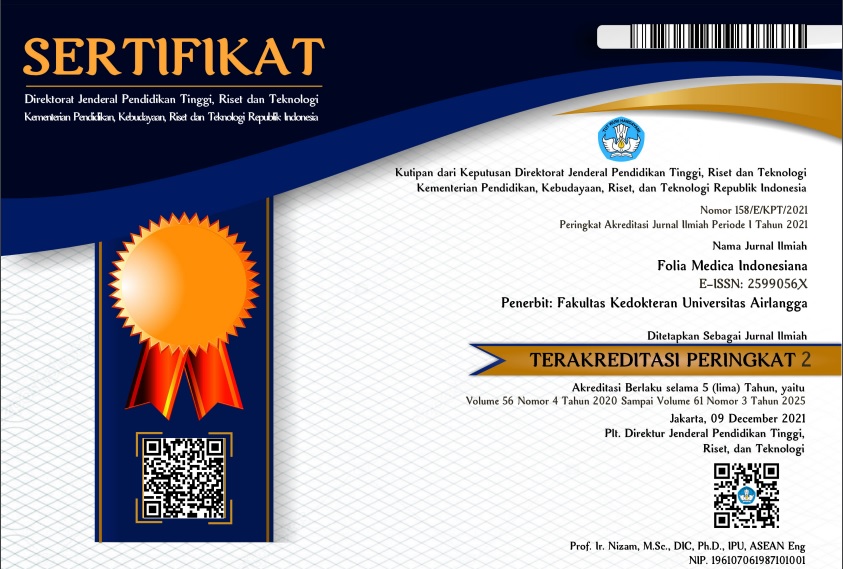Abstract
Treatment strategy of ischemic stroke is to reduce the extent of the damage and rescue neurons from death in the early days of ischemic events. Recombinant Tissue-Plasminogen Activator (r-TPA) is the only recommended therapy, but their use is very limited. Citicoline is a neuroprotectant with a therapeutic effect on several stages of the ischemic cascade. However, its use is still being debated. The purpose of this study was to analyze the use of supplementation citicoline injection in patients with acute ischemic stroke in relations to differences in changes in the level of interference (impairment), rate limitation (disability) and the level of obstruction (handicap) between the group receiving supplementation of citicoline injection 2x500 mg iv and the group without supplementation during acute phase treatment. This study was a prospective cohort study using experimental design in patients with acute ischemic stroke who met the inclusion and exclusion criteria with or without supplementation citicoline between January - April 2015 in the National Stroke Hospital, Bukittinggi. Rate of interference was assessed with NIHSS, level of limitations with Barthel Index, and level of obstruction with modified Rankin Scale. Assessment was done 2 times, before and after the treatment. Statistical methods used in this study were Wilcoxon signed rank test, paired T-test and Mann-Whitney test. This study was conducted on 50 subjects divided into 2 groups, a control group without supplementation and group treated with injected citicoline of 2x500 mg iv. Demographic and baseline characteristics did not differ between groups. There were differences in level of interference changes. Mean decrease in control group was 0.96 ± 1.74 NIHSS, while that in treatment group was 2.84 ± 1.46 NIHSS (p <0.05). There were differences in changes in the level of limitations. Mean increase of Barthel Index in control group 9.60 ± 11.17 and in treatment group 20.40 ± 13.99 (p <0.05). However, changes in the level obstacle showed no difference. In conclusion, citicoline injection supplementation in patients with ischemic stroke during acute phase treatment showed improvement differences in changes in the level of distraction (impairment) and the rate limitations (disability), but showed no difference in changes in the level of obstruction (handycaps).
Keywords
citicoline, injected citicoline, neuroprotection, acute phase therapy, acute ischemic stroke
First Page
245
Last Page
251
DOI
10.20473/fmi.v51i4.2854
Publication Date
11-15-2016
Recommended Citation
Wahyudi, Rino; Hasmono, Didik; Fitrina, Ruhaya; and Armal, Khairil.
2016
Injected citicoline improves impairment and disability during acute phase treatment in ischemic stroke patients.
Folia Medica Indonesiana. 51,
4 (Dec. 2015 ), 245-251.
Available at: https://doi.org/10.20473/fmi.v51i4.2854






